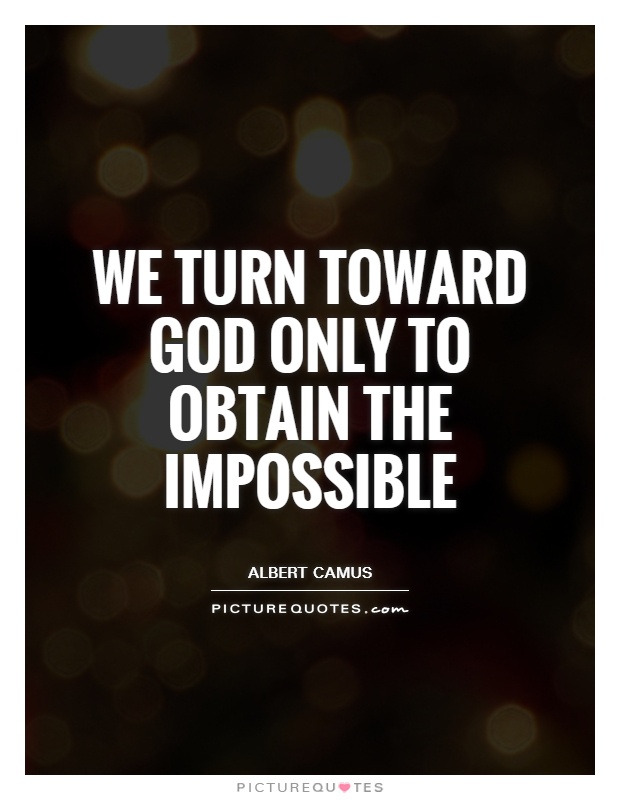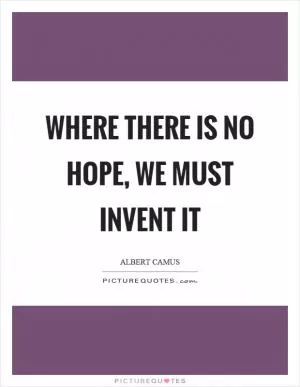We turn toward God only to obtain the impossible

We turn toward God only to obtain the impossible
Albert Camus, a renowned French philosopher and writer, is often associated with the concept of the absurd, which suggests that life is inherently meaningless and devoid of any inherent purpose. In this context, the idea that we turn toward God only to obtain the impossible takes on a profound significance.For Camus, the search for meaning and purpose in life is a futile endeavor, as he believed that the universe is indifferent to human existence. In his essay "The Myth of Sisyphus," Camus famously compares the human condition to the mythological figure of Sisyphus, who is condemned to endlessly roll a boulder up a hill, only for it to roll back down each time he reaches the top. This eternal cycle of futility and despair serves as a metaphor for the absurdity of human existence.
In light of this perspective, the idea of turning toward God to obtain the impossible can be seen as a desperate attempt to find meaning and purpose in a world that offers none. In seeking the impossible, whether it be salvation, redemption, or transcendence, we are ultimately seeking to escape the inherent meaninglessness of our existence.
Camus himself grappled with questions of faith and spirituality throughout his life, but ultimately rejected the idea of a higher power or divine purpose. In his novel "The Plague," he explores the themes of suffering, death, and the human condition in the face of a devastating epidemic. The characters in the novel turn to religion and prayer in the midst of the crisis, but ultimately find no solace or answers in their search for meaning.












 Friendship Quotes
Friendship Quotes Love Quotes
Love Quotes Life Quotes
Life Quotes Funny Quotes
Funny Quotes Motivational Quotes
Motivational Quotes Inspirational Quotes
Inspirational Quotes